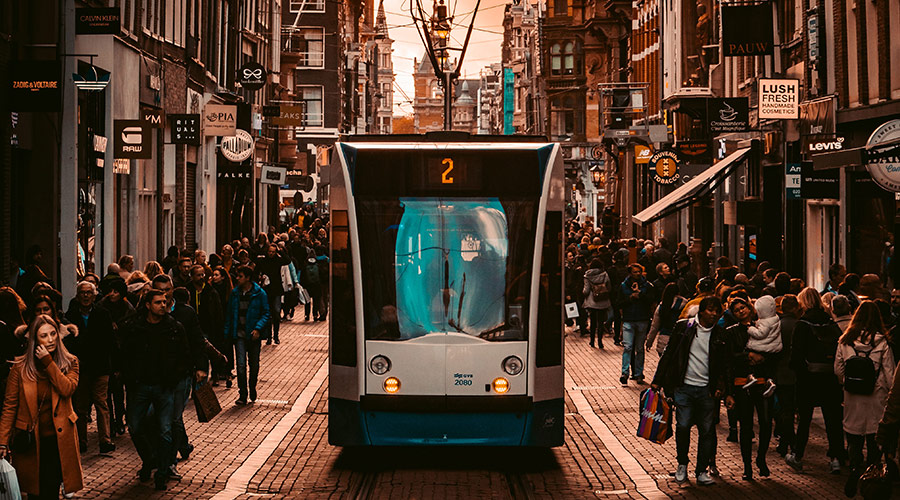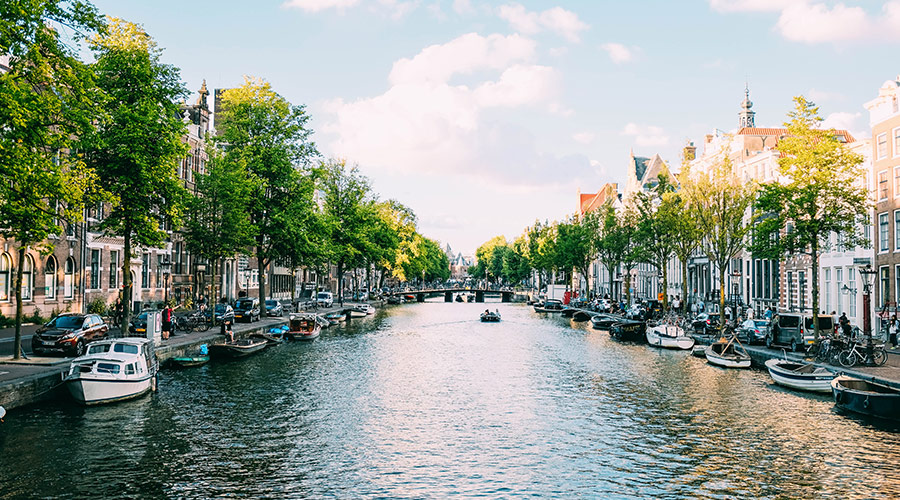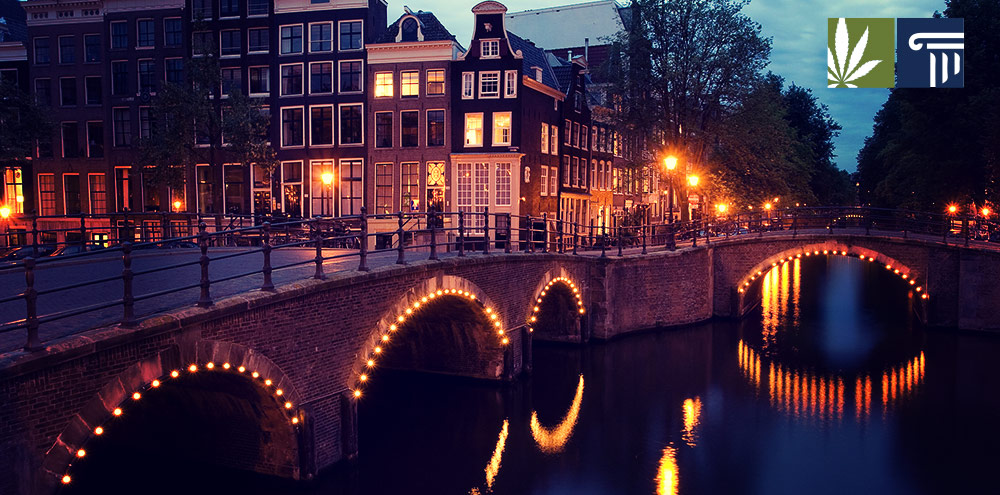Cannabis tourism in Amsterdam could be one of the casualties of the COVID-19 pandemic. As coronavirus restrictions begin to loosen and borders start reopening, residents of Amsterdam are circulating a petition demanding that municipal authorities take steps to ensure mass tourism doesn’t return to the city’s streets.
One of the proposed measures includes banning tourists from buying cannabis, and establishing a “marijuana pass” system whereby residents can become a member of one of the city’s coffeeshops – the favored term for cannabis cafes. This system, known locally as the ‘wietpas,’ has been in place for several years in some of the Netherlands’ southern border towns to deter visitors from neighboring countries seeking weed.

But Amsterdam residents have more in their sights than just restricting access to cannabis for tourists. The petition, which has garnered enough signatures to trigger a city council referendum, wants to bring the total number of visits down to around 12 million overnight stays per year, roughly equivalent to 2014’s tourism figures.
Prior to the pandemic, Amsterdam – a city of less than a million – received at least 19 million visitors per year. This works out at around 55,000 tourists in the city on any given day, mostly concentrated in Amsterdam’s historic center where the infamous red-light district is located – home to a majority of the city’s coffee shops and brothels, adorned with window-dressing models.

City center residents in particular have long complained of feeling alienated from their own streets by rowdy visitors and the scores of shops and businesses that only cater to tourists. In a letter to Amsterdam Mayor Femke Halsema, the petition organizers say the coronavirus outbreak provides an opportunity to make a break with the recent past and replace failing tourism-oriented businesses with more amenities focused on locals.
“Amsterdam faces a choice: return to a situation where the city center is primarily for tourists, or focus on a city center with a diverse neighborhood economy in which residents are central, and tourists can visit a lively city instead of an amusement park,” the petition reads, according to an internet translation.
For her part, Mayor Halsema was already considering measures aimed at improving the quality of life in the city center.
“We do not want to be famous for sex and drugs,” she said last year. “We want to be famous for our cultural heritage.”
Halsema commissioned research to determine the main reasons why tourists visited the city. Earlier this year, the resulting survey revealed that going to a coffeeshop to buy marijuana was an “important reason” to come to Amsterdam for 57 percent of visitors.
While restrictions in Amsterdam’s city center on tourist-centered brothels and marijuana cafes – as well as on new hotels and short-stay rentals – are largely welcomed by locals, many businesses, sex workers, and those working in the tourist trade are concerned they’ll be sidelined in a post-pandemic economic recovery.
For a lot of Amsterdam’s residents though, the respite from throes of tourists during the COVID19 pandemic offered a glimpse into a way of life they don’t want to lose.
“Suddenly, residents meet each other again on the street, drink a cup of coffee together on the pavement and even the first flower beds have been spotted on the Red Light District. It is actually bizarre that these normal neighborhood scenes feel strange,” the petition reads.






